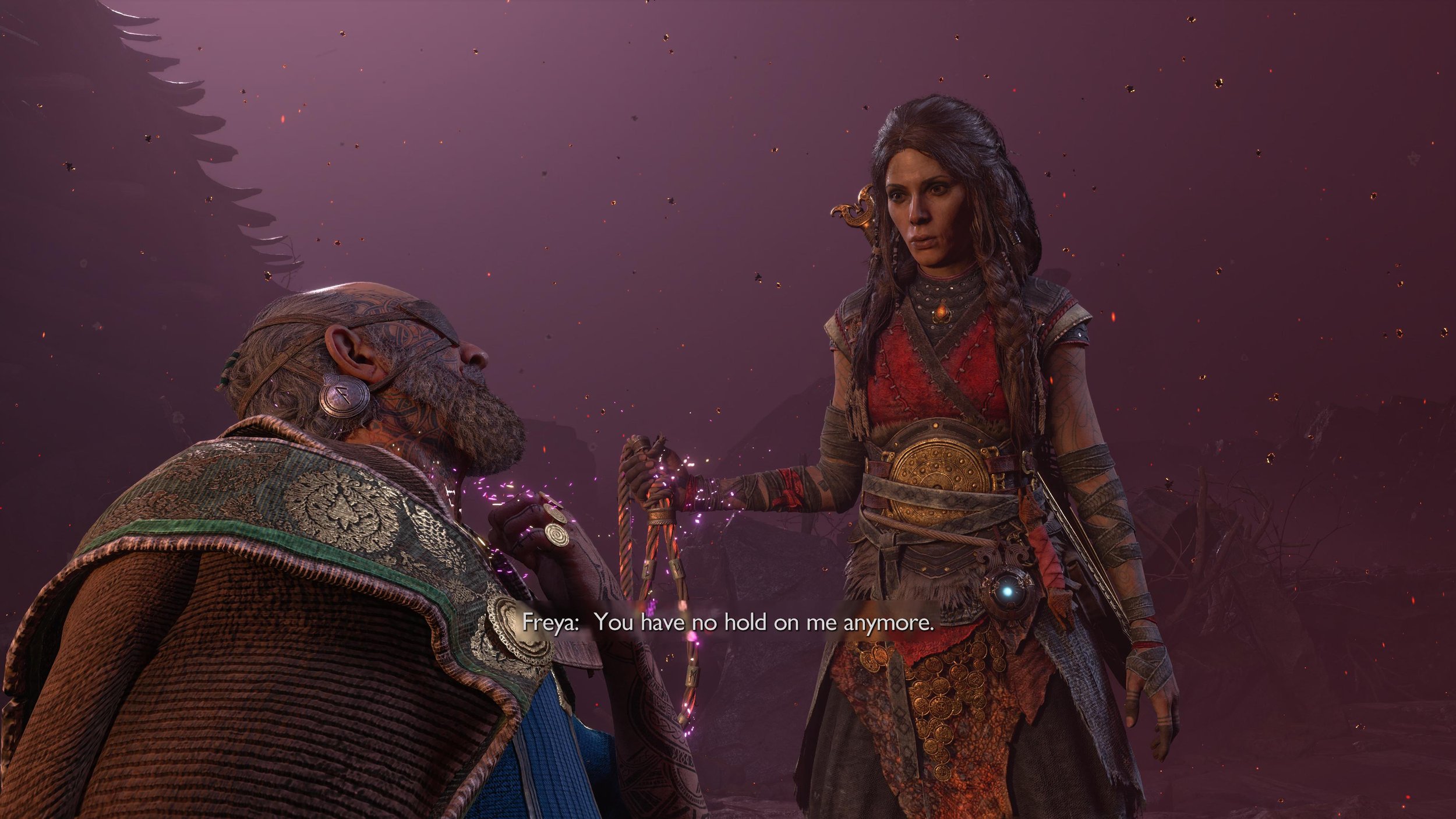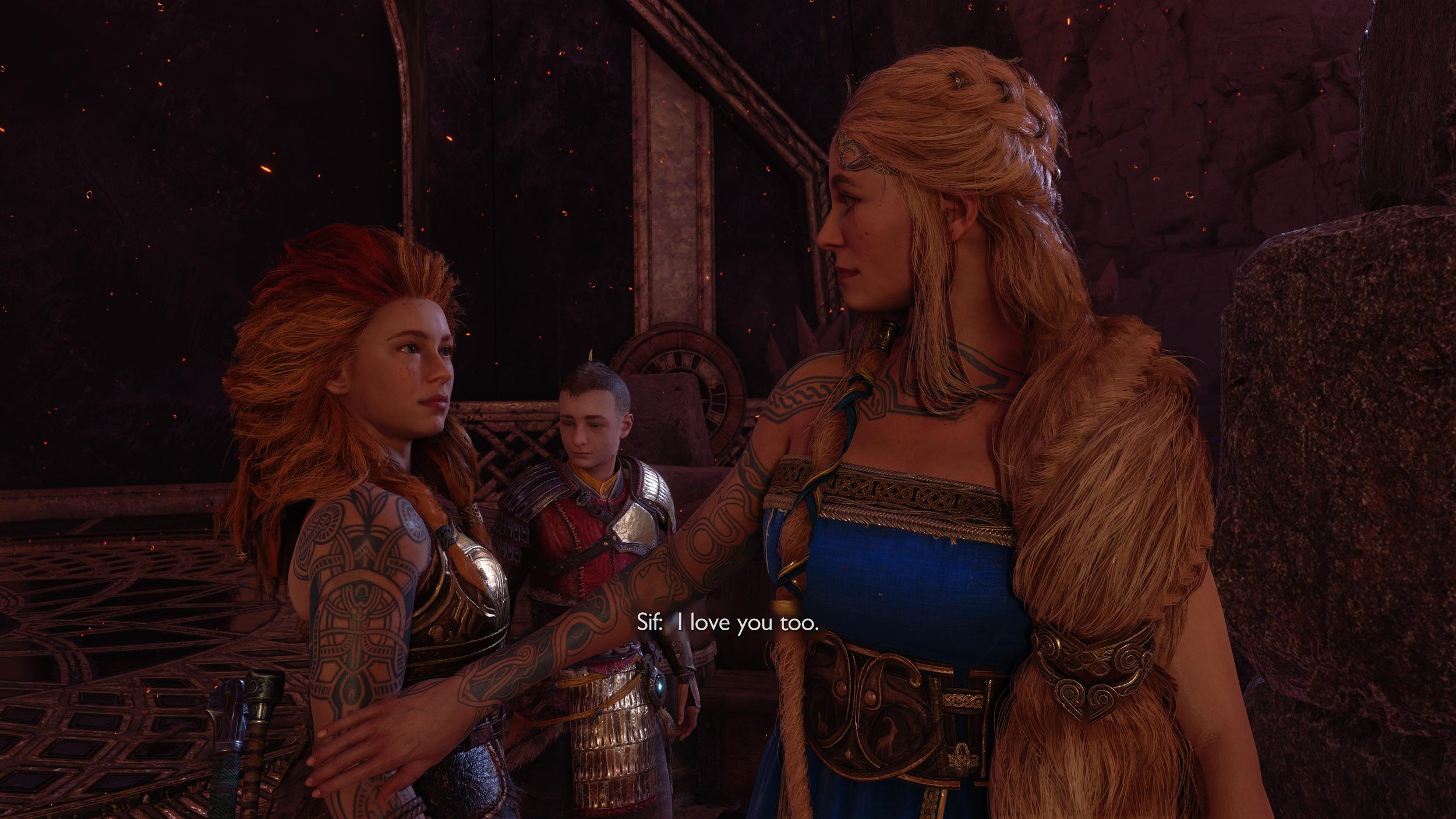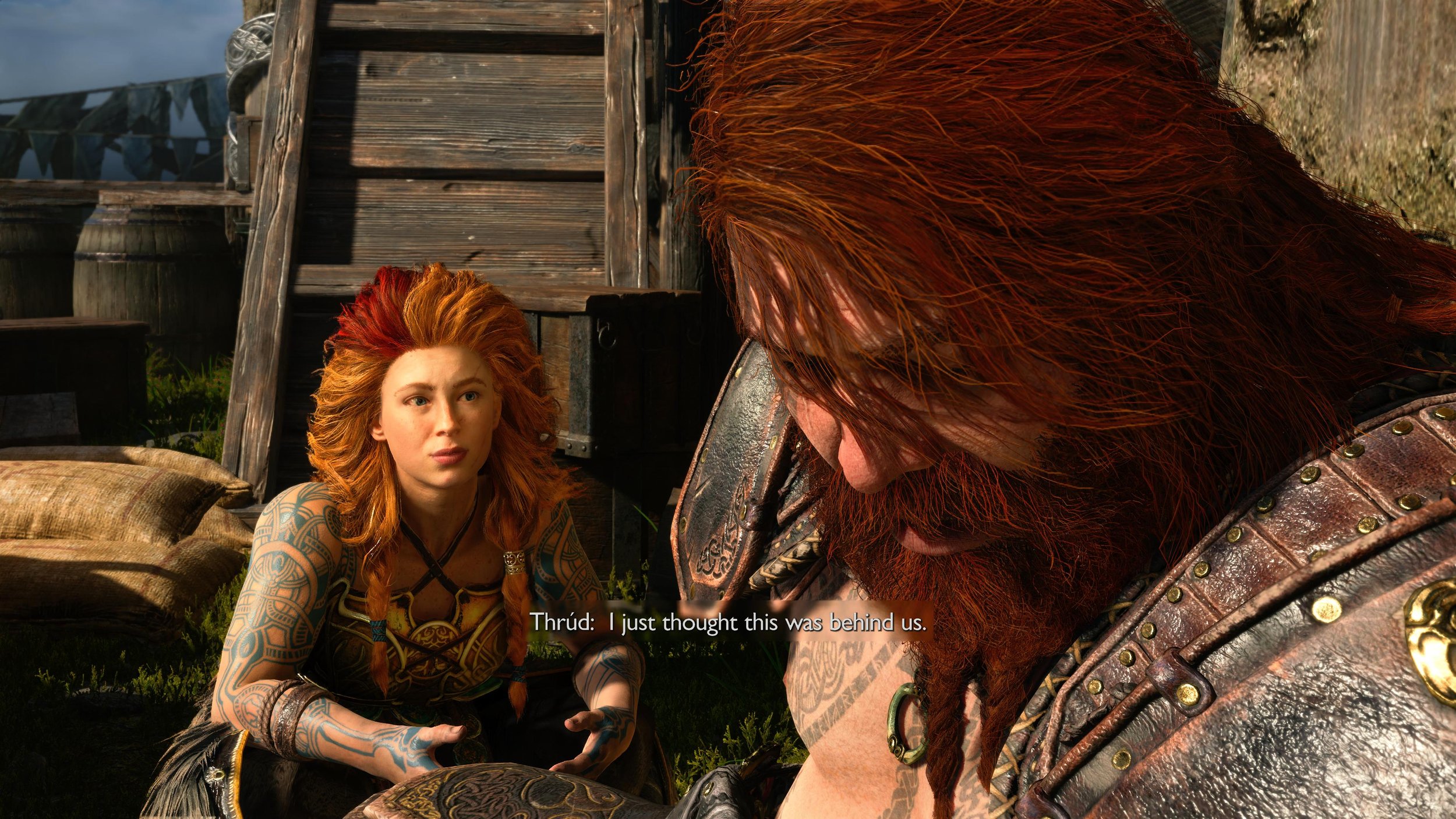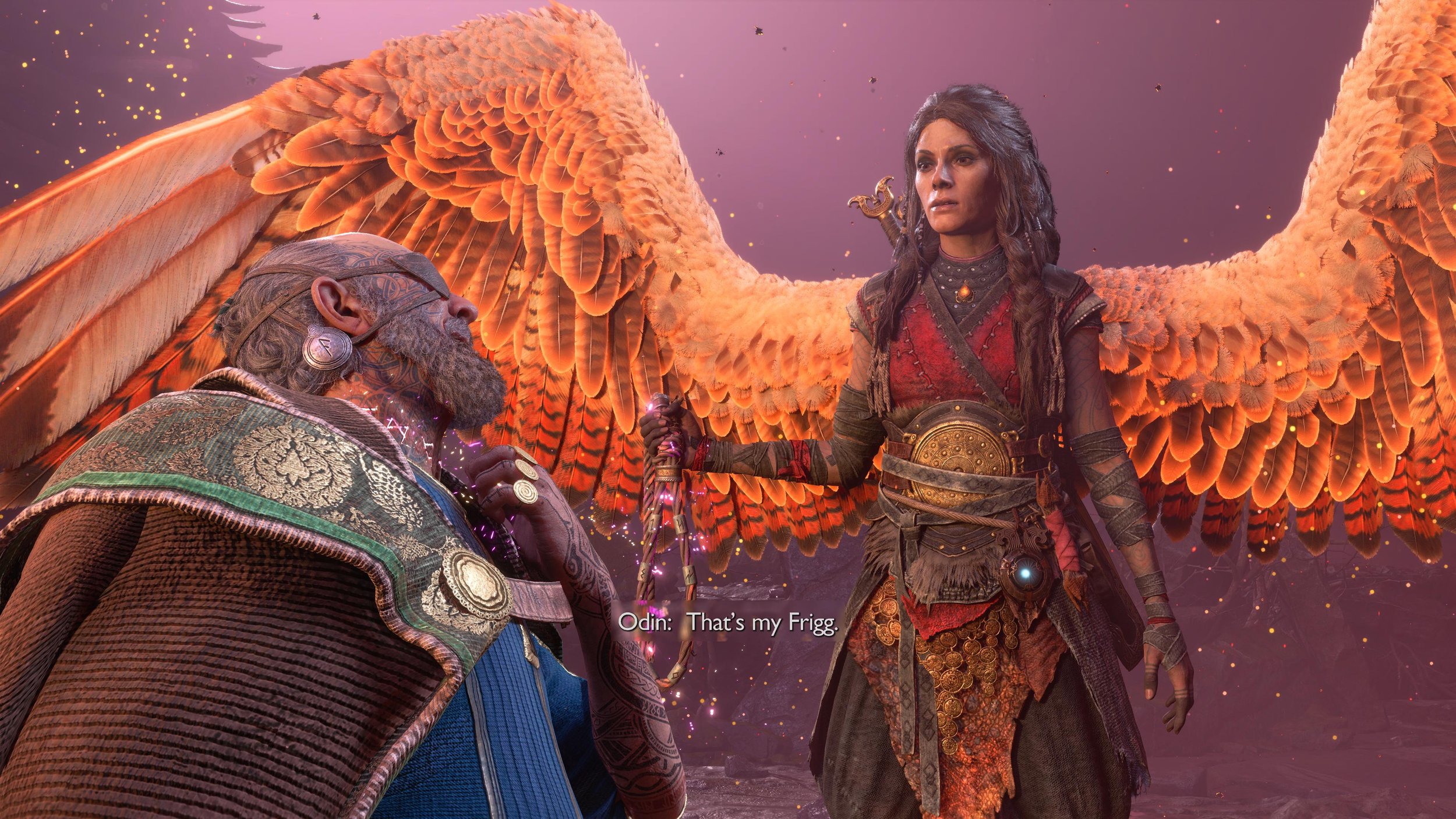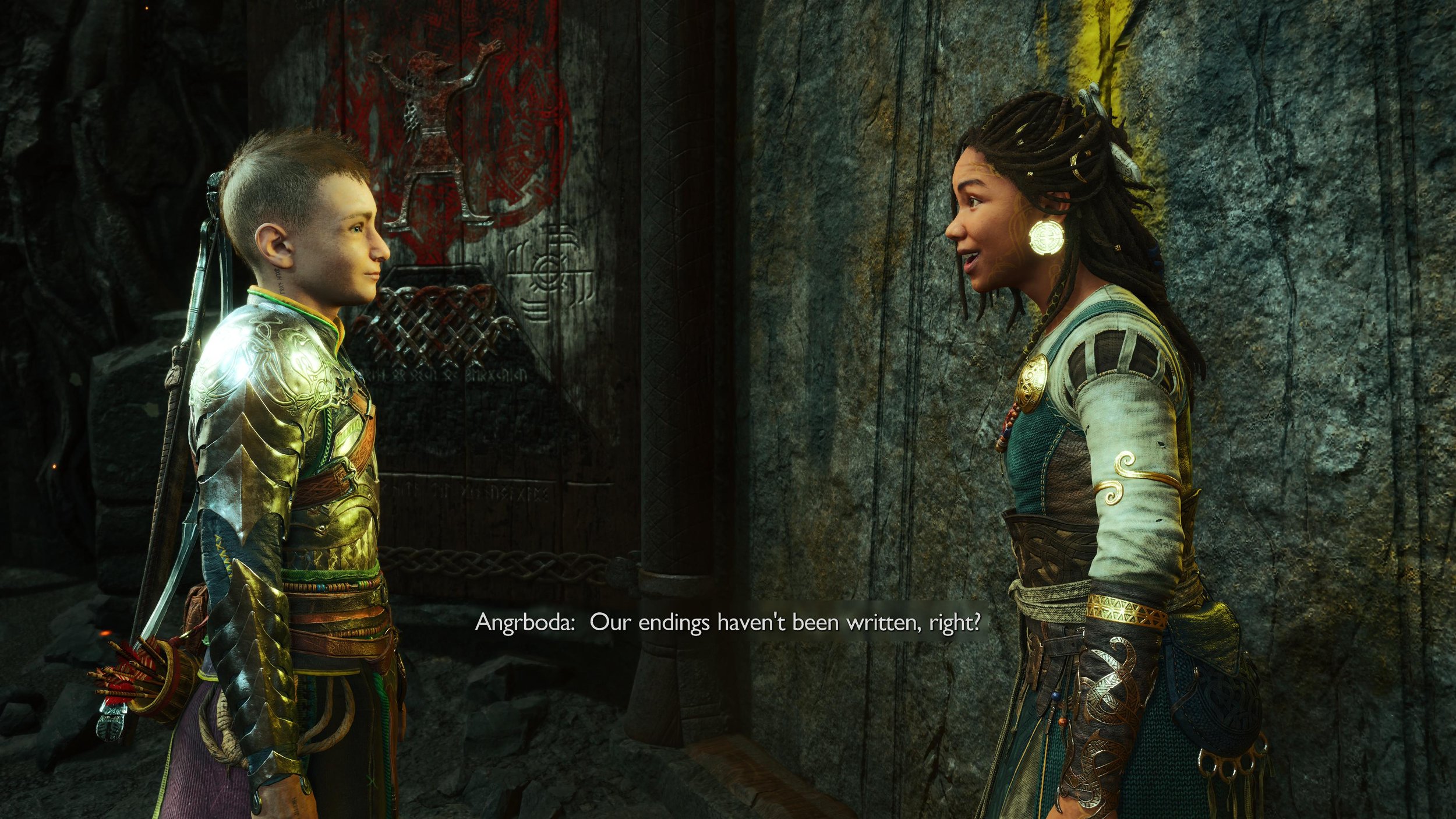Grief Across the Nine Realms: Woe and Womanhood in God of War: Ragnarok
WARNING: This post contains spoilers (like, heavy spoilers) for God of War: Ragnarok. Read at your own risk!
“To grieve deeply…is to have loved fully.”
Having finally finished my initial playthrough of God of War: Ragnarok, I have to acknowledge what everyone else has already come to understand: The game is a masterpiece. The story continues from that established in the 2018 prequel and expands in ways that were both delightful and heartbreaking to follow and uncover.
However, despite the deep evolution that both Kratos and Atreus underwent over the course of the game - despite the way I yearned for their paths to, by some miracle, reach a relatively happy ending - it was the women of the game whose stories captured my heart. Big or small, goddess or human, the trials put forth toward the ladies of Ragnarok illustrated the many ways that women of all backgrounds sacrifice themselves for the ones they love, and are often left fractured because of it.
Mothers and Daughters: Thrud and Sif
Though our time spent with this Asgardian duo was relatively short, the way that both Thrud and her mother Sif tugged on my heartstrings is undoubtedly impressive. Thrud’s goal was clear from her introduction: She wanted to join the Valkyries to make both her father (Thor) and her grandfather (Odin) proud. This would have been a fine goal, if she had found support or nurturing from either of the men she was so desperate to please. Despite her strength and drive, she was never taken seriously, leading to an adolescence filled with bitter loneliness.
Sif’s goal was even clearer: She wanted to protect her daughter. This was a difficult task to take on when it seems that everybody else in Thrud’s life was meant to bring her pain. Her grandfather, the literal ruler of Asgard, dismissed her ambitions without a second thought, and her father - the man meant to raise and protect her - fell victim to alcoholism when she needed him most. Even her friendship with Atreus was filled with complicated emotions, considering the fact that he had a hand in the deaths of her two brothers, Magni and Modi. Every powerful man who surrounded her was a reminder of what she couldn’t attain, no matter how hard she tried.
All Sif wanted was for her daughter to be safe. All Thrud wanted was the chance to prove herself. These two desires were forever at odds with one another, leading to frequent mother/daughter clashes that, as a former teenage girl myself, were achingly familiar. Though Sif and Thrud were able to reach a peaceful resolution by the end of the game, it came at the cost of almost everything else they held dear: their home destroyed, their family broken, and their status in the world rocky at best. Still, they managed to hold onto one another as the world collapsed around them, and, now united, face what will hopefully be a brighter future ahead.
Protectors and Guides: Angrboda and Faye
When Atreus first met Angrboda, I was wary; here was this lush, magical land being tended to by a kind-hearted girl, and I was fearful that this brash, impulsive teenage boy was going to ruin it all. Luckily that didn’t happen, but Atreus’ involvement in Angrboda’s life led to something just as gutwrenching, in a sense: the severing of her connection to her grandmother, Gryla. The familial relationship between these two was extremely tenuous at best, but being the (supposed) last of the giants, it is hard to imagine the thoughts that were racing through Angrboda’s mind after Gryla banished her for good from her home. I couldn’t think abotu it for long, though, because my dear Angrboda had to return to her main focus: supporting Atreus.
Angrboda irked me at times with her complete dedication to supporting the boy who had suddenly landed in her home. As I played through the Ironwood section of the game, I found myself frustrated with the lack of answers I was getting about HER story. I understand that her purpose was largely to shepherd Atreus to the fate that awaited him, and I can admit that her character developed by the end of the game as she realized that she indeed had the power to shape her own future. However, this is a realization that I wish she could have made on her own, without it being forced down her throat by a teenage boy with bad hair.
Much like his son, Kratos was blessed with a woman to guide his travels. A key difference, however, is that this one worked from beyond the grave. Faye, wife to Kratos and mother to Atreus, had long passed by the time the events of Ragnarok came to be. In fact, her death - or, more specifically, her request to have her ashes scattered from the highest peak in all the realms - was the trigger for nearly all of the duo’s adventures in the 2018 game. Now years later, it was she who Kratos dreamed of whenever he slept. She was the one to guide him through his confusion and panic as he was faced with the trials of raising a teenager. Her purpose as Kratos’ heart compass was important, but to me felt incomplete. What I would give to have been given more of her story, and to see more of just what caused Kratos to fall in love with her.
Angrboda and Faye. Though their involvement in the events leading up to Ragnarok differed in scope and purpose, one thing they absolutely have in common is this: Without their guidance both before and beyond the grave, neither Kratos nor Atreus would have found success in their journeys. For that, we are all thankful to the giants.
The Trapped Wife: Freya
There would be no story without Freya. Queen of Asgard and a Vanir goddess, leader of the Valkyries, sister of Freyr, soldier of Ragnarok…the titles are endless, but Freya carried them all with dignity and grace. However, the role she held that hurt me the most to see was that of Odin’s unwilling wife. We knew from the 2018 game that Freya held no love in her heart for the king of Asgard. In Ragnarok it became even more apparent just why that was. Freya proved time and time again that she was one of the strongest warriors in all the lands, but the fight that she could never truly win was that against her husband.
Odin never saw Freya as an individual, but instead wanted her as a trophy. He was captivated by her beauty and magic and eagerly married her, but soon felt threatened by her power and therefore did all that he could to suppress it. This story of a man intimidated by his wife’s accomplishments is common, yet was painful just the same to see play out in this game. Odin restrained Freya physically by keeping her contained by magic in Midgard, unable to hurt others and always open to attacks. He corrupted the Valkyries because he knew that it would hurt Freya. He started and maintained a brutal war against her people, the Vanir. Even when kneeling in defeat at Freya’s feet after the final battle, Odin refused to give his wife the basic dignity of addressing her by her proper name. Instead he used the nickname that he knew she detested: “Frigg”. Odin thrived off of “getting back” at Freya, and the All-Father had no space in his heart for kindness or compassion when it came to the woman who was meant by marriage to be his equal.
I will never forget the sheer relief that swelled in me when Freya was finally able to break free of the magical chains that bound her to Midgard. I was captivated by the raw emotion she portrayed when she realized she was finally one step closer to freedom, to clawing out from under the heel of Odin’s boot. Freya fought tooth and nail to be able to face her abusive husband and declare herself a free woman. Her journey ended up robbing her of much, including her beloved brother, but it finally brought her what had been out of reach for so long: inner peace.
The Power of the Woman
After completing God of War: Ragnarok, I took time to process just why the women’s stories had impacted me so deeply. This isn’t the first time I’ve observed inequal and abusive relationships in media, nor will it be the last. Perhaps it was the variety of injustices that filled the story. I have no daughter of my own, but when I think of my sister and her dreams, I can understand the lengths Sif was willing to go to protect Thrud. I’m far past my teenage years, but I can laugh in exasperation when I remember the stupid things I did for boys back then, just like Angrboda. I’ve never been a Vanir goddess yet I still rejoice for Freya’s freedom, much as I’ve done for women in my own life who have left toxic partners. The female experience might be deeply nuanced, but so many aspects of it are universal - the ones listed above, and many more.
The struggles of womanhood differ vastly from person to person, situation to situation. It could be a mother struggling to hold together a family on the brink of collapse; a girl tasked with the nearly impossible job of directing a teenage boy in a productive direction; or even a jaded wife attempting to reclaim the broken pieces of herself from the man who smashed her to pieces. To be a woman and live in the world of Ragnarok means to live bravely, love deeply, and cling fast to those you care for. I am thankful for the various examples of powerful women presented throughout this game, and the courage each and every one of them demonstrated in order to persevere in a world where they were not meant to succeed.
